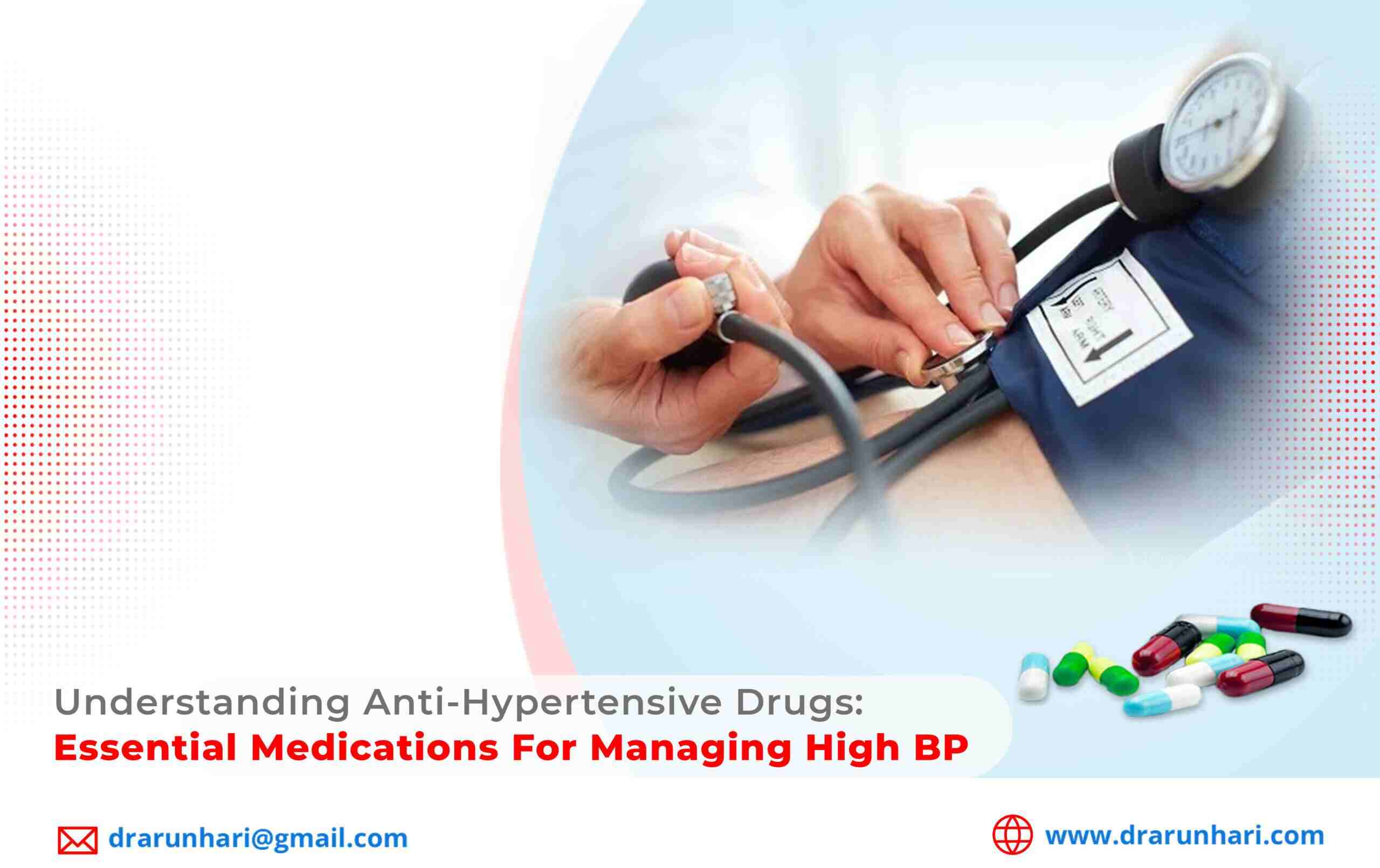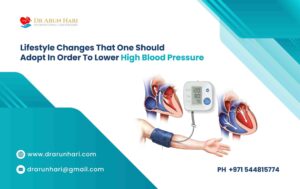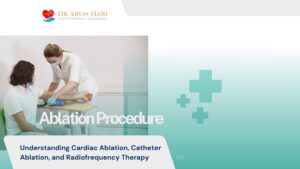Doctor Arun Will Prescribe You the Most Apt Anti-Hypertensive Drugs for Your Specific Condition
Hypertension, commonly known as high blood pressure, is a prevalent health condition affecting millions of people worldwide. If left untreated, hypertension can lead to severe complications, including heart disease, stroke, and kidney problems. Fortunately, medical advancements have provided a range of effective treatments to control BP and minimize these risks. Among the most important tools in managing hypertension are the anti-hypertensive drugs.
Anti-Hypertensive Drugs
There are many medications to reduce BP for bringing it within the normal ranges. Some commonly prescribed anti-hypertensive drugs include the following:
- Diuretics: These water-pills are often prescribed as first-line treatment for hypertension. These medications work by increasing the excretion of water & sodium from the body, thereby reducing the volume of blood, and lowering blood pressure. Diuretics can be classified into three types: thiazide diuretics, loop diuretics, and potassium-sparing diuretics. Examples include hydrochlorothiazide, chlorthalidone, furosemide, thiazide, and spironolactone.
- ACE Inhibitors: ACE stands for Angiotensin-Converting Enzyme! ACE inhibitors prevent the production of angiotensin II, a hormone that causes blood vessels to constrict and increases blood pressure. By inhibiting the action of ACE, these medications relax blood vessels, reduce fluid retention, and lower blood pressure. Commonly prescribed ACE inhibitor drugs falling under this specific category are enalapril, lisinopril, captopril, & ramipril.
- ARBs: ARBs or Angiotensin II Receptor Blockers work by blocking the action of angiotensin II from binding to its receptors, thus preventing blood vessels from constricting. This relaxation of blood vessels leads to lower blood pressure. ARBs are often prescribed when ACE inhibitors are not well-tolerated. Common examples include losartan, valsartan, telmisartan, and candesartan.
- Beta-Blockers: Beta-blockers act by blocking the effects of adrenaline and noradrenaline (epinephrine and norepinephrine), which are hormones that increase heart rate and constrict blood vessels. By reducing the workload on the heart, beta-blockers lower blood pressure. They are also commonly used to manage other heart conditions, such as angina and arrhythmias. Examples of beta-blockers include nadolol, metoprolol, propranolol, pindolol, atenolol, and carvedilol.
- CCBs: CCBs or Calcium-Channel-Blockers prevent calcium from entering muscle cells in the walls of blood vessels and the heart. By inhibiting calcium, these medications relax blood vessels, improve blood flow, and reduce blood pressure. There are two types of CCBs: dihydropyridines, which mainly affect blood vessels (e.g., amlodipine, nifedipine), and non-dihydropyridines, which primarily affect the heart (e.g., diltiazem, verapamil).
- Alpha-Blockers: Alpha-blockers work by blocking the effects of certain nerve impulses (alpha-adrenergic receptors) that tighten blood vessels. By relaxing the smooth muscles in the arterial walls, alpha-blockers widen blood vessels and reduce resistance, thus lowering blood pressure. The drugs falling into this category include prazosin, terazosin, & doxazosin.
- Centrally-Acting-Sympatholytic: This is the substance acting upon the central nervous system for inducing blood vessels dilation & thus, BP. Drugs in this category are methyldopa & clonidine. Methyldopa is generally suited for pregnant ladies having hypertension problems.
- Vasodilators: Drugs of this particular segment include minoxidil & hydralazine that work towards relaxing the smooth muscles of blood vessels leading the vessels to dilate & relax, which tends to reduce the pressure against which the heart pumps & thus lowers BP.
Doctor Arun Will Prescribe You the Most Apt Anti-Hypertensive Drugs for Your Specific Condition
Anti-hypertensive drugs play a crucial role in managing high blood pressure and reducing the associated risks. These medications work through various mechanisms to lower blood pressure, such as reducing blood volume, relaxing blood vessels, and modifying hormone activity. It is important to note that the choice of medication and treatment plan should be tailored to each individual’s needs and medical history, and regular monitoring is also essential! You can get all this and more at Doctor Arun’s clinic under his expert guidance!





